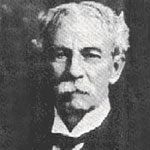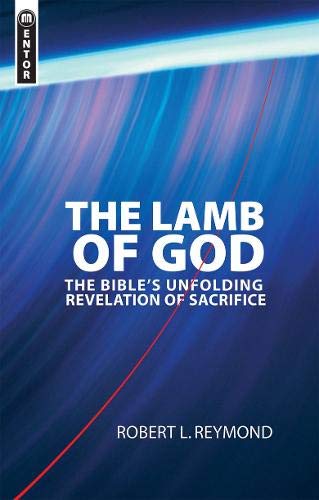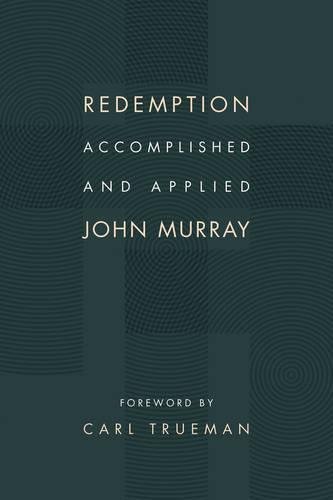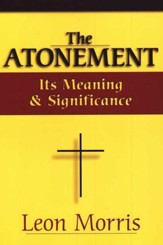Quotes about Jesus_Christ-Death-Atonement
The debt was so great, that while man alone owed it, only God could pay it.
It would not have been right for the restoration of human nature to be left undone, and…it could not have been done unless man paid what was owing to God for sin. But the debt was so great that, while man alone owed it, only God could pay it, so that the same person must be both man and God. Thus it was necessary for God to take manhood into the unity of His Person, so that he who in his own nature ought to pay and could not should be in a person who could… The life of this Man was so sublime, so precious, that it can suffice to pay what is owing for the sins of the whole world, and infinitely more.
Here is a beautiful antithesis. In ourselves we are scattered, in Christ we are gathered together. By nature we go astray and are driven headlong to destruction, in Christ we find the path that leads us to the gate of salvation. Our sins overwhelm us, but they are laid on Christ by whom we are unburdened. Therefore, when we were perishing and, alienated from God, were hastening to hell, Christ took upon Himself the filthy depths of our sins, to rescue us from eternal destruction.
An infinite sin deserves an infinite punishment because it receives its aggravation from the dignity of the person against whom it is committed. So the sufferings of Christ, though finite in regard of His human nature, received an infinite value from the infiniteness of His person, equivalent to the debts of all that come to Him. Sin is finite in regard to this subject, infinite in regard to the great God against whom it is. The sufferings of Christ are infinite in regard of the subject and infinitely please the Governor of the world unto whom the offering is made.
The agonies of Christ were more than the sufferings of all the martyrs, and all men in the world, since God laid upon him the sins of the whole world.
When He died, Jesus actually accomplished expiation and propitiation for sins, but for whom? If Jesus propitiated God for the sins of all, then all are saved. Clearly, however, not all are saved. This is because it was never our Savior’s intention to propitiate God’s wrath for everyone who ever lived. Rather, it was His intention to redeem all of His people completely.
By atonement, we mean that Christ lived and died as the substitute for His people, putting away their sin and turning away God’s wrath from them, that is, all those whom God chose, in Christ, from eternity out of pure grace.
God is faithful and just to forgive every sin and cleanse from all unrighteousness because of Christ’s atonement alone. In other words, the believer does not confess in order to get something. What he seeks he already has.
Confessionism: The Misuse of 1 John 1:9, Christian Communicators Worldwide, www.CCWtoday.org. Used by Permission.
The cross confirms all that we have said about the infinite offense of sin. It says that no finite sacrifice can atone for sin (Heb. 10:4). Nothing but a sacrifice of infinite value, God Himself, can atone for our offenses. In addition, no one but an infinite Being is capable of suffering sufficiently to atone for infinite offenses against an infinitely holy God.
Gospel-Powered Parenting, 2009, P&R Publishing, p. 94, Used by Permission. Get this book!
The complete atonement which Jesus Christ has made for our sins, by the sacrifice of Himself, is the life and center of the evangelical system, and that which endears it so much to the hearts of those who believe. Here we see pardon procured, and the sinner saved, while sin is condemned and punished. Here we see the most solemn display of justice and holiness, in conjunction with the freest exercise of mercy. Here we see sinful rebels delivered from deserved punishment, and advanced to a state of dignity and honor; and at the same time, the rights of that divine government against which they had rebelled inviolably preserved and maintained. Through what Jesus Christ has done and suffered for us – we behold the righteous law of God magnified, in justifying those who had violated its precepts, and brought themselves under its curse. In the death of that Lamb of God, we perceive at once – the Almighty’s eternal abhorrence of that which is evil and His infinite love to His offending creatures.
This, then, is how Jesus made atonement – how He paid it all. The punishment which was due to us He voluntarily received. The death which was the wages of our sin He underwent. The stripes with which we deserved to be beaten fell upon His willing back. The chastisement which was owing us was borne by Him. The price we would have paid by endless suffering He paid by an infinite sacrifice. It should have been I who cried out, “My God, my God, why hast thou forsaken me?” It should have been He who said: “I am persuaded that nothing shall separate me from the love of God.” Because Jesus paid it all, it was He who was forsaken and we who never shall be. Because He drank the full cup of divine wrath, we shall never taste it. “There is therefore now no condemnation to them that are in Christ Jesus.”
Christ’s atoning work does not change God’s wrath to love, for God’s love is itself the source of the atonement.
We start each day with our personal security resting not on the accepting love of God and the sacrifice of Christ but on our present feelings or recent achievements in the Christian life. Since these arguments will not quiet the human conscience, we are inevitably moved either to discouragement and apathy or to a self-righteousness which falsifies the record to achieve a sense of peace. But the faith that is able to warm itself at the fire of God’s love, instead of having to steal love and self-acceptance from other sources, is actually the root of peace.
Our most merciful Father…sent His only Son into the world, and laid upon Him all the sins of all men, saying, Be Thou Peter that denier; Paul that persecutor, blasphemer and cruel oppressor; David that adulterer; that sinner which did eat the apple in Paradise; that thief which hanged upon the cross; and briefly be Thou the person which hath committed the sins of all men; see therefore that Thou pay and satisfy for them [all].
God must either inflict punishment or assume it. And He chose the latter course.
Cries from the Cross, Moody Publishers, 2002, p. 100. Get this book!
[Jesus] had to compress an eternity of hell into three hours. As best we can, we must grasp that this was infinite suffering for the infinite Son of God. There was no way to transfer sin without transferring its penalty. To put it plainly, He was receiving what was due us. The wrath of the Father burned toward the Son once the reckoning was made. Indescribable sin was in contact with infinite holiness and infinite justice.
Cries from the Cross, Moody Publishers, 2002, p. 98. Get this book!
If Christ paid the penalty for everyone’s sins, how could God sentence people to hell for sins that Christ bore the punishment for?
Infinite wrath moved by infinite righteousness releases infinite punishment on the infinite Son who can absorb an eternal hell for all who will ever believe in three hours. It is here that He bears in His own body our sins. It is here that He has made sin for us who knew no sin. It is here that He is wounded for our transgressions, crushed for our iniquity. It is here that He is made a curse for us. These are the three hours of the wrath of God on Him.
The King Crucified Consummation at Calvary. The sermon originally appeared at: (https://www.gty.org/library/sermons-library/42-288/the-king-crucified-consummation-at-calvary) at www.gty.org. © 1969-2008. Grace to You. All rights reserved. Used by Permission.
The Father imposed His wrath due unto, and the Son underwent punishment for, either: 1. All the sins of all men. 2. All the sins of some men. 3. Some of the sins of some men. In which case it may be said: a. That if the last be true, all men have some sins to answer for, and so none are saved. b. That if the second be true, then Christ, in their stead suffered for all the sins of all the elect in the whole world, and this is the truth. c. But if the first be the case, why are not all men free from the punishment due unto their sins? You answer, Because of unbelief. I ask, Is this unbelief a sin, or is it not? If it be, then Christ suffered the punishment due unto it, or He did not. If He did, why must that hinder them more than their other sins for which He died? If He did not, He did not die for all their sins!
Nobody has the right to dismiss the doctrine of the limitedness of the atonement as a monstrosity of Calvinistic logic until he has refuted Owen’s proof that it is part of the uniform biblical presentation of redemption, clearly taught in plain text after plain text.
Quoted in: The Death of Death in the Death of Christ by John Owen, Introduction, by permission Banner of Truth, Carlisle, PA.
Get this book!
Calvary not merely made possible the salvation of those for whom Christ died; it ensured that they would be brought to faith and their salvation made actual.
If Christ’s death fully paid the penalty for everyone’s sins – irrespective of faith or unbelief – it is impossible that these sins could be punished again in the court of a just God. That the Bible so clearly promises God’s vengeful judgment on the sins of unbelievers proves that Christ did not die for their sins.
Not one for whom He died can possibly miss heaven.
[Jesus Christ] did not ransom everybody. He gave his life a ransom for many (Mark 10:45). He did not propitiate the wrath of God against everybody. But He laid down His life for the sheep. They are scattered throughout the world in every tongue and tribe and people and nation.
Jesus Christ is an Advocate for Sinners, Sermon, February 10, 1985, www.DesiringGod.org, Used by Permission.
Because the Father, the Son, and the Spirit are perfectly united in their essence, the three persons of the Trinity must be perfectly united both (a) in their saving intentions and (b) their saving acts. What the Father wills must be what the Son wills, and what the Son wills must be what the Spirit wills. Those whom the Father intends to save must be the same exact number as those whom the Son intends to save, and those whom the Son intends to save must be the same exact number as those whom the Spirit intends to save. And since Scripture teaches (a) that the Father has chosen to save a particular people and not all without exception, and since it teaches (b) that the Spirit will regenerate that same particular people and not all without exception, it also teaches (c) that the Son has atoned for that same particular people and not all without exception. To say otherwise is to strike at the heart of the unity of the Triune God. It is to undermine the doctrine of the Trinity, the most fundamental doctrine of Christianity. Unity in the Trinity demands a particular redemption.
Shepherd’s Conference 2022, Triune Salvation: Why the Unity of the Trinity Demands a Definite Atonement.
If (a) the Son has come to do the will of the Father, and if (b) the will of the Father is that the Son should give eternal life to all whom the Father has given Him, and if (c) the Father didn’t give Him the world but only some out of the world, then the redemption accomplished by the Son is particular, not universal.
Shepherd’s Conference 2022, Triune Salvation: Why the Unity of the Trinity Demands a Definite Atonement.
We can never attach too much importance to the atoning death of Christ. It is the leading fact in the word of God, on which the eyes of our soul ought to be ever fixed. Without the shedding of his blood, there is no remission of sin. It is the cardinal truth on which the whole system of Christianity hinges. Without it the Gospel is an arch without a key-stone, a fair building without a foundation, a solar system without a sun… This, after all, is the master-truth of Scripture, that “Christ died for our sins.” To this let us daily return. On this let us daily feed our souls. Some, like the Greeks of old, may sneer at the doctrine, and call it “foolishness.” But let us never be ashamed to say with Paul, “Be it far from me to boast, except in the cross of our Lord Jesus Christ.” (Gal. 6:14.)
If indeed Christ provided a propitiation and expiation for all human beings and for all their sins, then, clearly, all persons would be saved. Universal atonement, if it is actual, and not merely potential, means universal salvation. However, the overwhelming majority of Christians who reject limited atonement also reject universal salvation. They are particularists, not universalists.
[People often say], “Christ’s atonement was sufficient for all, but efficient only for some.” What does this mean? The Calvinist would interpret this axiom to mean that the value of Christ’s sacrifice is so high, His merit so extensive, that its worth is equal to cover all the sins of the human race. But the atonement’s benefits are only effective for believer’s, the elect. The non-Calvinistic interprets this axiom in slightly different terms: Christ’s atonement was good enough to save everyone – and was intended to make salvation possible for everyone. But that intent is realized only by believers. The atonement is efficient [or “works”] only for those who receive its benefits by faith.
The real issue was the design, or purpose, of God’s plan in laying upon His Son the burden of the Cross. Was it God’s purpose simply to make salvation possible for all but certain for none? Did God have to wait to see if any would respond to Christ to make His atonement efficient? Was it theoretically possible that Jesus would die “for all” yet never see the fruit of His travail and be satisfied? Or was it God’s eternal purpose and design of the Cross to make salvation certain for His elect? Was there a special sense in which Christ died for His own, for the sheep the Father had given Him?
To deny the great doctrine of atonement by the blood of Jesus Christ is to hamstring the gospel, and to cut the throat of Christianity.
Of late, I have heard things that I never dreamed of before, alleged even by professedly Christian ministers against the fundamental doctrines of God’s Word; and some have even dared to say that the substitution of Christ, His suffering in our stead, was not just. Then they have added that God forgives sin without any atonement whatever; but, if the first be not just, what shall I say of the second? If God continually forgives sin without taking any care of His moral government, if there be nothing done for the vindication of His justice, how shall the Judge of all the earth do right? Then the very foundations of the universe would be removed, and what would the righteous do? Depend upon this, whatever modern philosophy may say, “Without shedding of blood there is no remission of sin,” that is to say, without an atonement and an atonement consisting of the giving up of a life of infinite value, there is no passing by of human transgression.
I would rather believe a limited atonement that is efficacious for all men for whom it was intended, than a universal atonement that is not efficacious for anybody, except the will of men be added to it.
If Christ on His cross intended to save every man, then He intended to save those who were lost before He died. If the doctrine be true, that He died for all men, then He died for some who were in hell before He came into this world, for doubtless there were even myriads there who had been cast away because of their sins. Once again, if it was Christ’s intention to save all men, how deplorably has He been disappointed, for we have His own testimony that there is a lake which burneth with fire and brimstone, and into that pit of woe have been cast some of the very persons who, according to the theory of universal redemption, were bought with His blood.
I believe that if I should preach to you the atonement of our Lord Jesus, and nothing else, twice every Sabbath day, my ministry would not be unprofitable. Perhaps it might be more profitable than it is.
We are often told that we limit the atonement of Christ, because we say that Christ has not made satisfaction for all men, or all men would be saved. Now, our reply to this is, that, on the other hand, our opponents limit it: we do not. The Arminians say, Christ died for all men. Ask them what they mean by it. Did Christ die so as to secure the salvation of all men? They say, “No, certainly not.” We ask them the next question: Did Christ die so as to secure the salvation of any man in particular? They answer “No.” They are obliged to admit this, if they are consistent. They say, “No. Christ has died that any man may be saved if” – and then follow certain conditions of salvation. Now, who is it that limits the death of Christ? Why, you. You say that Christ did not die so as infallibly to secure the salvation of anybody. We beg your pardon, when you say we limit Christ’s death; we say, “No, my dear sir, it is you that do it.” We say Christ so died that he infallibly secured the salvation of a multitude that no man can number, who through Christ’s death not only may be saved, but are saved, must be saved and cannot by any possibility run the hazard of being anything but saved. You are welcome to your atonement; you may keep it. We will never renounce ours for the sake of it.
To think that my Savior died for men who were or are in hell, seems a supposition too horrible for me to entertain. To imagine for a moment that He was the Substitute for all the sons of men, and that God, having first punished the Substitute, afterwards punished the sinners themselves, seems to conflict with all my ideas of Divine justice. That Christ should offer an atonement and satisfaction for the sins of all men, and that afterwards some of those very men should be punished for the sins for which Christ had already atoned, appears to me to be the most monstrous inequity… God forbid that we should ever think thus of Jehovah, the just and wise and good!
We say that Christ so died that He infallibly secured the salvation of a multitude that no man can number, who through Christ’s death not only may be saved, but are saved, must be saved, and cannot by any possibility run the hazard of being anything but saved.
God requires satisfaction because He is holiness, but He makes satisfaction because He is love.
This death of God’s Son is the only and entirely complete sacrifice and satisfaction for sins; it is of infinite value and worth, more than sufficient to atone for the sins of the whole world.
The Canons of Dort, The Second Main Point of Doctrine: Christ’s Death and Human Redemption Through It. Article 3- The Infinite Value of Christ’s Death.
Since not everyone will be saved, there is one inescapable fact to understand: the atonement of Christ is limited. If it isn’t, then universalism must be true, and yet Scripture clearly teaches that not everyone is going to be saved. So, unless one is a universalist and can defeat the biblical evidence above, then one must hold to some form of limited atonement.
Got Questions? Is the Atonement of Christ Unlimited? www.GotQuestions.org. Used by Permission.
Calvinists/Reformed thinkers maintain that God limits the atonement by choosing those whom He will save, and thus God only placed on Christ the sins of those He had chosen for salvation. The Arminian/Wesleyan position states that God does not limit the reparation of Christ, but instead it is humanity that limits the atonement by freely choosing to accept or reject the offer that God makes to them for salvation.
Got Questions? Is the Atonement of Christ Unlimited? www.GotQuestions.org. Used by Permission.
[Definite] atonement [teaches] that [Christ’s death] was specific in whom it covered (God’s people), was substitutionary in nature (He actually bore their sins on the cross), and actually accomplished what God intended it to do (justify many). Clearly, here is a picture of an intentional, definite atonement. Christ died not simply to make justification a possibility but to actually justify those He died for. He died to save them, not to make them savable.
Many theologians use the word “vicarious” to describe Christ’s atonement. This word means “acting on behalf of” or “representing another” and is used to describe “something performed or suffered by one person with the results accruing to the benefit or advantage of another.” The vicarious atonement of Christ means He was acting as a representative for a specific group of people (the elect) who would receive a direct benefit (salvation) as the result of His death.
If Jesus actually stood in my place and bore my sin on the cross as the Bible teaches, then I can never be punished for that sin. In order for Christ’s atonement to truly be a substitutionary or vicarious atonement, then it must actually secure a real salvation for all for whom Christ died. If the atonement only makes salvation a possibility, then it cannot be a vicarious atonement. If Christ acted as a real and true substitute for those for whom He died, then all for whom He died will be saved. To say that Christ died a vicarious death in the place of all sinners but that not all sinners will be saved is a contradiction.
If one holds to an unlimited atonement while denying universal salvation, one ends up with a redemption that leaves men not totally free or actually redeemed, a reconciliation that leaves men still estranged from God, a propitiation that leaves men still under the wrath of God, and a substitutionary death that still makes the sinner himself help pay the debt of his sin. All of these aspects of the atoning work of Christ then become nothing more than a possibility that relies upon man to make them a reality.
One common misunderstanding about the doctrine of limited atonement is that this view somehow lessens or limits the value of the atonement of Christ. Yet exactly the opposite is true. Limited atonement correctly recognizes that Christ’s death was of infinite value and lacking in nothing. In fact, it is of such value that, had God so willed, Christ’s death could have saved every member of the human race. Christ would not have had to suffer any more or do anything different to save every human who ever lived than He did in securing the salvation of the elect. But that was not God’s purpose in sending Christ to the cross. God’s purpose in the atonement was that Jesus would secure forever the salvation of those the Father had given to Him (Hebrews 7:25). Therefore, while Christ’s atonement was limited in its intent or purpose, it was unlimited in its power.
Another common misunderstanding about the doctrine of limited atonement is that it somehow lessens or diminishes the love of God for humanity. Yet, again, exactly the opposite is true. Of all of the doctrines of grace, the doctrine of limited atonement, when correctly understood, magnifies the love of God; it does not diminish it. Limited atonement reinforces the intensive love of God that is revealed in the Bible. God loves His people with a love that saves them from their sin, as opposed to the love of the unlimited atonement view that sees God’s love as being more general in nature. In the unlimited atonement view, He loves everyone in general but saves no one in particular and, in fact, leaves the matter of their salvation up to them. Which is more loving, a love that actually saves people or a love that makes salvation “possible” to those who are dead in trespasses and sins and unable to choose God?
There is often confusion regarding the intended objects of Jesus’ saving work. Was it His mission to try to save as many people as possible? Or was He sent to actually save many specific people? Another way to ask these two questions is like this: Was Jesus trying to save all people so that many would become His? Or was He saving the many because they were already His? Passages like Matthew 1:21, Matthew 11:25-27, John 5:21, John 6:37-39, John 10:14-16, John 17:1-3, 2 Thessalonians 2:13 and many others, strongly affirm the latter.
Daryl Wingerd Understanding God’s Purpose in Sending His Son – "Basic Truth" series, #7, Christian Communicators Worldwide, www.CCWtoday.org. Used by Permission.




























